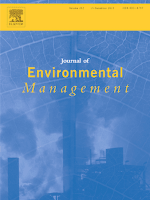
Journal of Environmental Management
Scope & Guideline
Transforming research into impactful environmental policies.
Introduction
Aims and Scopes
- Wastewater Treatment and Resource Recovery:
Research on the treatment of various types of wastewater, including municipal, industrial, and agricultural, focusing on innovative technologies and methods for resource recovery such as nutrients, energy, and water. - Ecosystem Services and Biodiversity:
Studies on the assessment, management, and restoration of ecosystem services, emphasizing the importance of biodiversity and its role in maintaining ecological balance. - Pollution Control and Remediation Technologies:
Development and evaluation of technologies for the mitigation of pollutants, including heavy metals, pharmaceuticals, and microplastics, with a focus on bioremediation and advanced oxidation processes. - Climate Change and Sustainable Practices:
Research on the impacts of climate change on various ecosystems and the development of sustainable practices and policies to enhance resilience and adaptation. - Renewable Energy and Resource Efficiency:
Exploration of renewable energy technologies and their integration into environmental management, alongside strategies for improving resource efficiency in various sectors. - Environmental Policy and Governance:
Analysis of environmental policies and governance frameworks aiming to promote sustainable development, assess effectiveness, and identify barriers to implementation.
Trending and Emerging
- Circular Economy and Waste Valorization:
There is a growing trend towards research focused on circular economy principles, emphasizing waste valorization techniques that convert waste into valuable resources and promote sustainability. - Microbial and Biotechnological Solutions:
An increase in studies exploring the use of microbial processes and biotechnological applications for environmental remediation and resource recovery, showcasing innovative approaches to traditional environmental issues. - Data-Driven Environmental Management:
Emerging interest in the application of big data, machine learning, and artificial intelligence for environmental monitoring, management, and decision-making processes. - Climate Resilience and Adaptation Strategies:
Research focusing on the development of strategies to enhance climate resilience, particularly in vulnerable ecosystems and communities, is gaining prominence. - Integrated Water Resources Management (IWRM):
A significant trend towards IWRM approaches that consider the interconnectedness of water, land, and ecosystems, promoting holistic management strategies.
Declining or Waning
- Traditional Pollution Monitoring Methods:
There is a noticeable decline in research focused on conventional pollution monitoring techniques, as newer, more advanced methods such as remote sensing and machine learning models gain traction. - Single-Sector Environmental Studies:
The journal has seen a reduction in papers addressing environmental issues from a single-sector perspective, with a growing emphasis on interdisciplinary and systems-based approaches. - Static Environmental Assessments:
Research that relies solely on static assessments of environmental impacts is waning, as dynamic and adaptive management strategies become more relevant in current environmental discourse.
Similar Journals

International Journal of Environmental Science and Technology
Elevating the discourse on environmental sustainability.International Journal of Environmental Science and Technology, published by SPRINGER, stands as a premier platform for the dissemination of cutting-edge research in the fields of environmental science, technology, and engineering. With an impressive scope spanning from 2005 to 2024, this journal serves as a vital resource for academic and professional communities engaged in tackling pressing environmental challenges. It boasts a strong reputation, evidenced by its Q1 ranking in Agricultural and Biological Sciences and solid placements in Environmental Chemistry and Engineering. Researchers searching for high-impact studies will find the journal's contributions significant, as reflected in its rankings within Scopus: 34th percentile in Agricultural and Biological Sciences and notable standings in Environmental Engineering and Chemistry. Although the journal is not currently an Open Access resource, it maintains a commitment to academic rigor and innovation, making it indispensable for those devoted to advancing knowledge in environmental sustainability and technology.
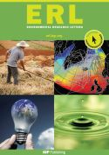
Environmental Research Letters
Empowering voices in environmental science.Environmental Research Letters is a premier, peer-reviewed journal published by IOP Publishing Ltd based in the United Kingdom, dedicated to advancing the field of environmental science. With an impressive Impact Factor and consistently ranked in the Q1 category for its focus on Environmental Science, Public Health, and Renewable Energy, this open-access journal has been a vital resource for researchers and practitioners since its inception in 2006. Covering a wide scope of topics including sustainability, environmental health, and innovative energy solutions, ERL aims to promote discourse and disseminate groundbreaking research that addresses global environmental challenges. As a leader in the field, it holds prestigious positions in Scopus rankings, ensuring that published works reach a wide audience, thus driving impactful change. Researchers, professionals, and students alike will find valuable insights and essential knowledge within its pages, making it a keystone publication for anyone invested in environmental advancements.
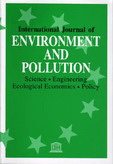
INTERNATIONAL JOURNAL OF ENVIRONMENT AND POLLUTION
Navigating the Intersection of Policy and Pollution ScienceInternational Journal of Environment and Pollution is a pivotal publication in the field of environmental science, dedicated to advancing knowledge concerning pollution and its multifaceted impacts on ecosystems and human health. Published by InderScience Enterprises Ltd, this journal, which has been in circulation since 1991, serves as a vital platform for researchers, professionals, and students interested in the management, monitoring, policy, and law associated with environmental issues. With an ISSN of 0957-4352 and E-ISSN 1741-5101, it offers a critical perspective on pollution challenges, emphasizing Waste Management and Disposal. Although placed in the Q4 quartile of its categories, it remains an important resource for understanding the complexities of environmental impact, contributing to policy formulation and ecological research. The journal does not offer Open Access, but it can be accessed through various academic libraries and institutions that value comprehensive studies in environmental management. Engage with the latest findings and discussions that address pressing environmental concerns today!
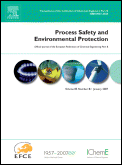
PROCESS SAFETY AND ENVIRONMENTAL PROTECTION
Elevating standards in process safety and environmental science.PROCESS SAFETY AND ENVIRONMENTAL PROTECTION, published by Elsevier, is a premier academic journal dedicated to advancing the fields of chemical engineering, environmental science, and safety management. With an impressive impact factor, this esteemed journal undergoes a meticulous peer-review process and serves as a vital platform for researchers, professionals, and students seeking to disseminate cutting-edge research and innovative practices. Submissions are welcome in a wide scope of topics related to safety, risk, reliability, and environmental engineering, demonstrating its influence as a Q1 journal across multiple categories, including Environmental Chemistry and Safety, Risk, Reliability and Quality. By providing a rigorous analysis of current challenges and solutions in the domain since its inception in 1990, it continues to foster interdisciplinary collaboration and practical applications in the United Kingdom and beyond. With the journal not currently offering Open Access options, subscribers gain exclusive access to pivotal insights that shape industry standards and drive advancements in sustainable practices.

ENVIRONMENTAL MANAGEMENT
Empowering ecological stewardship for a better planet.ENVIRONMENTAL MANAGEMENT, published by Springer, stands at the forefront of advancing sustainability and ecological stewardship in the fields of Ecology, Global and Planetary Change, and Pollution. With an impressive tracking history from 1977 to 2024 and prestigious quartile rankings reflecting its significant impact (Q1 in Ecology and Q2 in both Global and Planetary Change and Pollution), this journal engages a wide range of stakeholders, including researchers, policymakers, and environmental professionals. The journal is a vital resource for those dedicated to addressing pressing global environmental challenges, publishing rigorous interdisciplinary research that informs policy and practice. While it does not offer open access, its content remains accessible through institutional subscriptions. Located in the heart of New York, ENVIRONMENTAL MANAGEMENT is dedicated to fostering a substantive dialogue on innovative approaches to environmental preservation and management.

Environmental Sciences Europe
Shaping sustainable futures through open research.Environmental Sciences Europe is a leading peer-reviewed journal published by SPRINGER, dedicated to advancing research in the field of environmental science, with a specific focus on pollution and its mitigation. Since its transition to Open Access in 2011, the journal has been committed to disseminating high-quality research without barriers, thereby ensuring that critical knowledge is freely accessible to researchers, practitioners, and policymakers around the globe. Based in Germany and with a commendable Q1 ranking in Pollution for 2023, the journal stands out in the Scopus rankings, occupying the 23rd position out of 167 in its category, reflecting its significant impact in shaping environmental discourse. With a convergence of global research efforts projected until 2024, Environmental Sciences Europe aims to provide a vital platform for scholarly communication and collaboration, ultimately contributing to sustainable solutions for pressing environmental challenges.
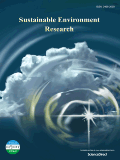
Sustainable Environment Research
Empowering global change with cutting-edge environmental science.Sustainable Environment Research, an esteemed journal published by BMC, serves as a pivotal platform for disseminating innovative research in the fields of Environmental Engineering, Pollution, and Renewable Energy. Established in 2016 as an Open Access journal, it facilitates the widespread sharing of knowledge and advancements across the globe, reflecting its commitment to enhancing environmental sustainability. With an impressive Q1 ranking in multiple categories, including Water Science and Technology and Pollution, the journal is recognized for its significant impact, currently holding a rank of 31st in Environmental Science - Water Science and Technology. The journal actively invites researchers, professionals, and students to contribute to crucial discussions around sustainable practices and technologies, thus addressing worldwide environmental challenges. Based in Taiwan but accessible internationally, Sustainable Environment Research provides a valuable resource for those dedicated to advancing the science of sustainability.

Environmental Processes-An International Journal
Exploring Interdisciplinary Insights in Environmental ScienceEnvironmental Processes-An International Journal, published by SPRINGER INT PUBL AG, serves as a vital platform for researchers and professionals dedicated to the dynamic field of environmental science. Established in 2014, this journal has rapidly gained prominence, currently holding a commendable Impact Factor and achieving impressive Scopus Rankings across various categories, including Q1 status in Water Science and Technology and Q2 in areas such as Environmental Engineering and Health, Toxicology and Mutagenesis. The journal emphasizes innovative research that contributes to the understanding and management of environmental processes and policies, addressing urgent challenges facing our planet. With a focus on high-quality, peer-reviewed content, Environmental Processes invites contributions that explore interdisciplinary approaches, making it a critical resource for scholars, policy-makers, and students invested in fostering a sustainable future through rigorous scientific inquiry. Access options are available for diverse readership, ensuring that essential findings are disseminated widely to inform decision-making and cultivate impact.
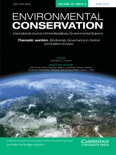
ENVIRONMENTAL CONSERVATION
Championing Insights in Ecology and ConservationENVIRONMENTAL CONSERVATION, published by Cambridge University Press, is a premier academic journal dedicated to advancing the field of environmental science and conservation. Since its inception in 1974, this journal has established a robust reputation, currently holding prestigious rankings in various categories including Q1 in Nature and Landscape Conservation and Q1 in Water Science and Technology, alongside notable Q2 rankings across several related fields. With its broad scope, ENVIRONMENTAL CONSERVATION covers critical topics in health, toxicology, pollution control, and environmental policy, making it an essential resource for researchers, professionals, and students aiming to address the pressing challenges of environmental sustainability. Despite not being an open-access journal, its impactful content, demonstrated by its significant positions in Scopus rankings, enhances scholarly discourse and informs policy worldwide. As we approach its 50th anniversary, this journal remains pivotal in fostering innovative research and promoting best practices in environmental stewardship.

Asian Journal of Water Environment and Pollution
Exploring innovative pathways to cleaner water.Asian Journal of Water Environment and Pollution is a leading academic journal published by IOS PRESS, dedicated to advancing the field of water science and technology, as well as pollution management. With its ISSN 0972-9860 and E-ISSN 1875-8568, this journal serves as a pivotal platform for researchers, professionals, and academics alike who are keen to explore innovative solutions and interdisciplinary approaches toward water-related challenges and environmental issues. Although currently positioned in the Q4 category for both pollution and water science & technology, the journal aims to foster impactful research and discussions that can enhance the understanding and treatment of water pollution. The Asian Journal of Water Environment and Pollution not only plays a crucial role in disseminating knowledge but also encourages the sharing of findings from unique geographic perspectives, particularly from Asia. As the field evolves, this journal is poised to become a vital resource for those looking to contribute to sustainable water management practices and pollution reduction strategies.